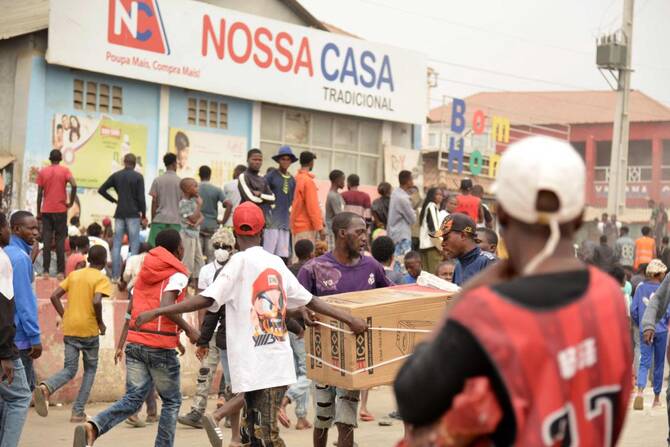Police in Angola have confirmed that four people were killed and 500 arrested following violent protests in the capital, Luanda, sparked by a three-day strike by taxi drivers over rising fuel prices. The demonstrations, which began on Monday, quickly escalated into one of the most widespread waves of unrest the country has seen in recent years, with thousands of people blocking roads, looting shops, and clashing with security forces.
The strike was triggered by the government’s decision to raise the price of diesel by more than 33% in early July as part of plans to remove fuel subsidies in the oil-rich nation. The increase has led to higher transport fares and a surge in the cost of basic goods, as suppliers pass on additional costs to consumers. “The fuel price issue is just the last straw that has reignited widespread public discontent. People are fed up. Hunger is rife, and the poor are becoming miserable,” said prominent activist Laura Macedo.
Despite the unrest, President João Lourenço dismissed the protests, arguing that demonstrators were using fuel prices as a pretext to destabilize the government. “Even after the increase, the price of diesel in Angola remains around 40 US cents per litre, and there are not many countries in the world with prices this low,” he said in an interview. However, frustration continues to grow in a country where the average monthly wage is just 70,000 kwanzas ($75; £56), and a promised increase to 100,000 kwanzas has yet to materialize.
As anger boiled over, protesters chanted against the fuel hike, nearly five decades of MPLA party rule, and the worsening economic conditions. State-run media faced heavy criticism online for failing to cover the demonstrations, while the MPLA accused protesters of attempting to disrupt preparations for Angola’s upcoming 50th independence anniversary celebrations.
Authorities reported that some of the protests were spontaneous, with unidentified groups resuming strike actions even after a major taxi association reportedly called off the strike following talks with the government. However, the association Anata vowed to continue the strike, saying, “The voice of the taxi drivers reflects the outcry of the Angolan people.”
By Tuesday, large parts of Luanda remained in lockdown, with major shops, banks, and businesses closed. Civil servants began returning to work, but many private sector employees stayed home on the advice of employers amid fears of further violence. Police say they are maintaining a heavy presence on the streets and will continue operations “to re-establish public order and peace” as tensions remain high in the capital.













Leave a comment